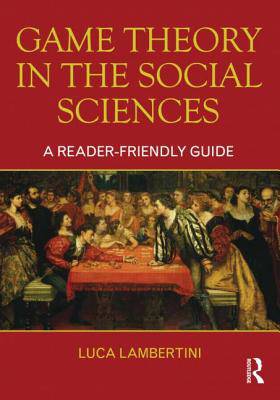
Vous voulez être sûr que vos cadeaux seront sous le sapin de Noël à temps? Nos magasins vous accueillent à bras ouverts. La plupart de nos magasins sont ouverts également les dimanches, vous pouvez vérifier les heures d'ouvertures sur notre site.
- Retrait gratuit dans votre magasin Club
- 7.000.000 titres dans notre catalogue
- Payer en toute sécurité
- Toujours un magasin près de chez vous
Vous voulez être sûr que vos cadeaux seront sous le sapin de Noël à temps? Nos magasins vous accueillent à bras ouverts. La plupart de nos magasins sont ouverts également les dimanches, vous pouvez vérifier les heures d'ouvertures sur notre site.
- Retrait gratuit dans votre magasin Club
- 7.000.0000 titres dans notre catalogue
- Payer en toute sécurité
- Toujours un magasin près de chez vous
97,45 €
+ 194 points
Description
Individuals, firms, governments and nations behave strategically, for good and bad. Over the last few decades, game theory has been constructed and progressively refined to become the major tool used by social scientists to understand, predict and regulate strategic interaction among agents who often have conflicting interests. In the surprisingly anodyne jargon of the theory, they 'play games'. This book offers an introduction to the basic tools of game theory and an overview of a number of applications to real-world cases, covering the areas of economics, politics and international relations. Each chapter is accompanied by some suggestions about further reading.
Spécifications
Parties prenantes
- Auteur(s) :
- Editeur:
Contenu
- Nombre de pages :
- 208
- Langue:
- Anglais
Caractéristiques
- EAN:
- 9780415664837
- Date de parution :
- 30-03-11
- Format:
- Livre broché
- Format numérique:
- Trade paperback (VS)
- Dimensions :
- 175 mm x 246 mm
- Poids :
- 385 g







